 I know, I know, what can I say…not a regency romance among them, but here are the books I’ve enjoyed this year in no particular order. I patronize the local library where I haunt the new release shelf and read mostly on my commute (40 minutes on the Washington, DC metro).
I know, I know, what can I say…not a regency romance among them, but here are the books I’ve enjoyed this year in no particular order. I patronize the local library where I haunt the new release shelf and read mostly on my commute (40 minutes on the Washington, DC metro). A funny book about suicide? Yep. A group of odd, sad, hopeless people meet on a rooftop from which they all intend to jump, and instead become friends–sort of–Nick Hornby isn’t a writer who gives in much to sentiment. Alternately touching, laugh-aloud funny, and savagely satirical.
A funny book about suicide? Yep. A group of odd, sad, hopeless people meet on a rooftop from which they all intend to jump, and instead become friends–sort of–Nick Hornby isn’t a writer who gives in much to sentiment. Alternately touching, laugh-aloud funny, and savagely satirical.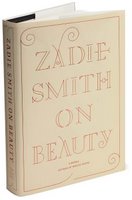
This is the book I got for xmas and my latest commuter read which I finished last night, although it was a book I wanted to go on for a lot longer. Zadie Smith can make you laugh at and care about her characters, while making you think about Big Things like families, love, education, culture, identity. Rich, satisfying, thoughtful, bighearted fiction.
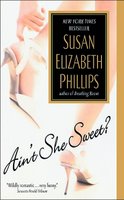 I was really surprised at how much I liked Ain’t She Sweet. Normally I run screaming from any book set in a small (particularly) southern town and/or dealing with characters suffering decades-old high school angst. But Phillips’ characters, particularly her complex, appealing hero and heroine, are grown-ups who can come to terms with their pasts, while still making some pretty dreadful mistakes in the present.
I was really surprised at how much I liked Ain’t She Sweet. Normally I run screaming from any book set in a small (particularly) southern town and/or dealing with characters suffering decades-old high school angst. But Phillips’ characters, particularly her complex, appealing hero and heroine, are grown-ups who can come to terms with their pasts, while still making some pretty dreadful mistakes in the present.
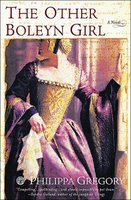 OK, I’m cheating a bit. I think this book came out a couple of years ago, but I read it this year and loved it. Imagine the Sopranos at the Tudor Court–the power-hungry, manipulative Howard family using the women of their family as pawns (“Yes, it’s Tuesday, Mary, so today it’s your turn to become the king’s mistress”). The book is about Mary, the sister of Ann Boleyn, briefly Henry VIII’s mistress, her troubled relationship with her sister and family, and how she breaks free of them. I love Gregory’s brilliant use of language, particularly dialogue, which evokes early sixteenth-century English without sounding archaic or anachronistic.
OK, I’m cheating a bit. I think this book came out a couple of years ago, but I read it this year and loved it. Imagine the Sopranos at the Tudor Court–the power-hungry, manipulative Howard family using the women of their family as pawns (“Yes, it’s Tuesday, Mary, so today it’s your turn to become the king’s mistress”). The book is about Mary, the sister of Ann Boleyn, briefly Henry VIII’s mistress, her troubled relationship with her sister and family, and how she breaks free of them. I love Gregory’s brilliant use of language, particularly dialogue, which evokes early sixteenth-century English without sounding archaic or anachronistic.Another cheating entry–published a few years back, but new to me this year. Yes, it’s about SM. I loved the voice of this book–Carrie’s ironic, bookish take on her adventures as a sex slave. It’s suprisingly funny and sweet. And, oh yes, very sexy indeed, even if you think you’re not into that sort of thing. Its author Molly Weatherfield wears another hat as a writer of equally wonderful regency-set historicals.
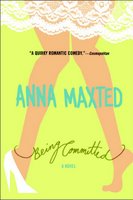
Anna Maxted is a British chicklit writer–roughly speaking–who isn’t afraid to take on big issues and real angst (date rape, bereavement, eating disorders) and in her latest, adultery. At the same time she’s genuinely, hysterically funny and her heroines don’t lapse into the self-pitying whines I tend to associate with chicklit. And how’s this for an opening line (maybe she’s a contender for the successor to Jane Austen title we discussed a week or so ago?): Every woman likes to be proposed to, even if she knows she’s going to refuse.

Here’s the best re-read of my year, Flora Thompson’s memoirs of growing up in the English countryside in the late nineteenth century. A great source for small details of country life and a sense of an era about to come to an end. My great-aunt told us it was exactly as she remembered her early childhood. The book may be out of print here, but it’s rediscovered and cherished by every generation in England.
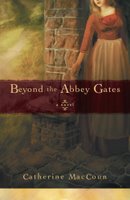 Looking ahead to 2006…In 1988 Catherine MacCoun published a book called The Age of Miracles, about a thirteenth-century novice who is possibly–or not–a saint, and what happens to her when she leaves the nunnery. I love this wry, thoughtful, beautifully written book–she’s another writer, like Gregory, who can evoke the past and not sound overly historical. I’ve re-read it many times and I guess it’s a romance, though nothing like any other medieval I’ve tried and flung against the wall. At the time I wouldn’t have been caught dead reading a romance (now I’m only mildly embarrassed but it’s so difficult to read with a paper sack over your head on the commute). After (oh, gasp, this makes me feel ill) eighteen years in the strange twilight world before the second sale, Ms. MacCoun’s next book comes out in May. And I can’t wait to read it.
Looking ahead to 2006…In 1988 Catherine MacCoun published a book called The Age of Miracles, about a thirteenth-century novice who is possibly–or not–a saint, and what happens to her when she leaves the nunnery. I love this wry, thoughtful, beautifully written book–she’s another writer, like Gregory, who can evoke the past and not sound overly historical. I’ve re-read it many times and I guess it’s a romance, though nothing like any other medieval I’ve tried and flung against the wall. At the time I wouldn’t have been caught dead reading a romance (now I’m only mildly embarrassed but it’s so difficult to read with a paper sack over your head on the commute). After (oh, gasp, this makes me feel ill) eighteen years in the strange twilight world before the second sale, Ms. MacCoun’s next book comes out in May. And I can’t wait to read it.

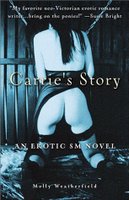
Ah, still more books I would love to read!
Except for AIN’T SHE SWEET, which I did read, and like Janet, was very skeptical. I could so easily identify with the quiet, studious girl the heroine picked on in high school! Susan Elizabeth Phillips is an amazing writer to pull off such a character.
Elena
I LOVED Ain’t She Sweet…and I’ve been meaning to read the Other Boleyn Girl for an age. She has a new one out about Katherine of Aragon (she’s got that Tudor period sewn up, huh?)
AIN’T SHE SWEET is the first contemporary romance to tempt me in an age. Gotta get hold of it.
The Hornby makes it to my best of list too — or will, when I put it up, when I put up my blog, or my ALMOST A BLOG, any day now. I also liked Hornby’s non-fiction book, the POLYSYLLABIC SPREE, a collection of his collumns from THE BELIEVER Magazine, about books he’s bought and books he’s read. He’s particularly a delight when he writes about is love for Charles Dickens.
I’ve squawked about Zadie Smith a bunch already, so I’m gonna quote my friend Laura Miller instead, who writes for Salon.com and other venues: “Smith is Rembrandtian (and, for that matter, Shakespearean and Tolstoyian) in her inexhaustible interest in and sympathy for even her most disagreeable characters.” This was from Salon.com, and it was my take entirely — as well as a lesson I’m trying to take to heart, as a putative writer of love Stories.
I didn’t take the Read a Regency dare, but did take Janet’s implicit dare to slog through the 600+ pages of Mrs. Gaskell’s WIVES AND DAUGHTERS — well worth it (I’ve got a country assembly scene in my forthcoming book that we shall do best to call “an homage” to hers). She’s a wise and subtle writer. though the shorter CRANFORD might be a better place to start.
Upcoming for 2006 — besides getting to some regencies — my husband has just put an ARC of the wonderful Sarah Waters’ next novel in my hand — it’s due out in March and is called THE NIGHT WATCH. And I shall not — shall NOT — open it until I read the small pile of books which I hope will yield an idea for my own next novel. What, me worry?
Oh, and I think I hear the distant evil giggle of the clever and dirty-minded Molly Weatherfield, astonished to have made it into such proper company.
Happy new year all,
Pam
I love Zadie Smith’s writing so much (though I still like White Teeth a bit better than On Beauty!). I kind of hate her, too, since she is the same age I am and has accomplished so much artistically. 🙂
Amanda — Zadie Smith is the same age as my SON, and has accomplished more than I ever will. At a certain point one gets over it, I think. My forthcoming book is about the passing of time and the interaction of generations — hope I can appeal to some fringes of the romance market who find this as compelling a topic as I do.
One of the reasons I love ON BEAUTY is that it’s about Smith’s parents’ generation as well as her own; reading ON BEAUTY as I finished my mss (last December 16, as it happened) was a glorious experience, even if shot through with my knowledge of my own limitations.
Janet–Love your list, and I am jealous of your morning commute. I bet that sounds nuts, but to me, being able to read on the way to work instead of drive sounds wonderful.
I just gave myself some gifts–handmade cloth book covers from a seller on eBay. I plan on using them instead of the paper sack you mentioned on appropriate occasions. (Smile!)
AIN’T SHE SWEET has been in my TBR pile for quite a while–I do have to read it. And thank you for the other titles. I want to broaden my reading horizons again–I used to read everything, but at some point I started denying myself the time, unless it was related to my genre or my writing or research. I need to cut loose. As the song goes, “someday never comes.”
Laurie
Oh, Laurie, I can so relate! I too have decided that it is “sometime” and I must take more time to read. It’s part of refilling the well.
Elena 🙂
Laurie, I used to have a book cover (I gave it to someone as a gift) which had something like “Go away, I’m at the good part” on it. I bought it at national.
A new Sarah Waters??? Wow. Apparently Nick Hornby’s book of essays on football (i.e. soccer) is also very good even if you don’t know an offside from a backside.
Janet